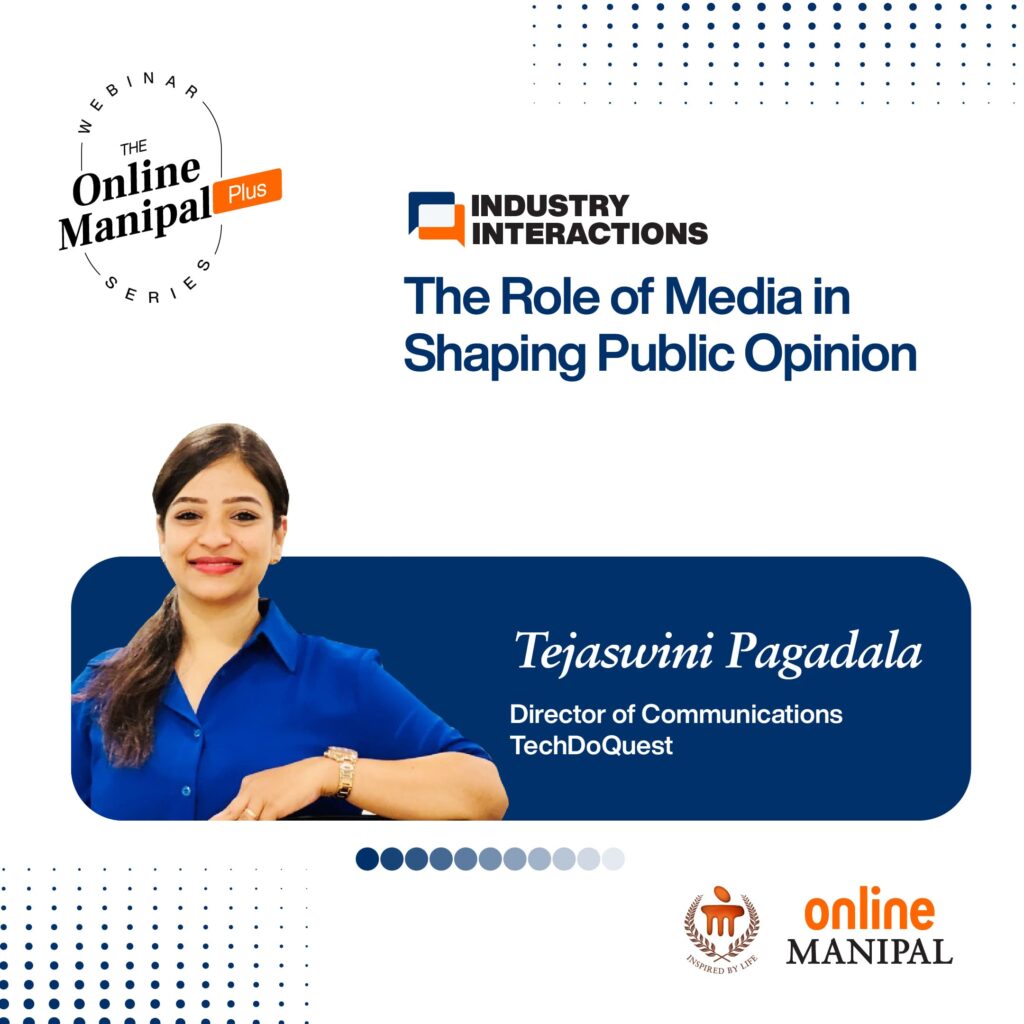Listen to this blog
In today’s interconnected world, the media plays a significant role in shaping both individual opinions and collective societal attitudes. Initially, traditional mass media like radio, newspapers, and television were pivotal in broadcasting news to the public. Now, the landscape has evolved dramatically with the emergence of digital media, social platforms, and new technologies, making information more accessible.
As the media landscape expands, so does its responsibility in shaping public opinion. But with this power comes the need for careful consideration, as the rapid spread of information brings with it issues of misinformation, agenda setting, and echo chambers that reinforce biases. This blog delves into how media influences public opinion, the mechanisms it uses, and the responsibilities it bears in today’s digital age.
The evolution of media and information dissemination
Today, social media platforms play a major role in spreading information. Stories that might not make the evening news can still reach millions through social media. However, this comes with a trade-off: the algorithms that drive virality on these platforms often prioritize trending or engaging content rather than the most relevant or factual information. This results in exposure to sensational stories, which can influence public opinion.
For example, a story might gain traction simply because it’s trending—not because it’s important or even accurate. This is especially true when the content resonates emotionally with viewers, regardless of its factual basis. Social media platforms employ algorithms that tailor content to individual preferences, creating a phenomenon where people are continually shown similar perspectives, reinforcing their beliefs in what’s known as an “echo chamber.” This often contributes to the spread of misinformation.
You may also like to read about impact of AI in media industry.
The influence of echo chambers and filter bubbles
In the digital era, media consumption is highly personalized. Algorithms on social media platforms like Facebook, Twitter, and Instagram track user behavior to curate content, which keeps users engaged but also reinforces existing beliefs. This personalization can create “echo chambers,” where individuals are only exposed to information that aligns with their views. Over time, this selective exposure leads to confirmation bias, where people are less likely to question the accuracy of information that supports their existing beliefs, increasing the risk of misinformation.
For example, during election seasons, social media becomes saturated with politically motivated content, some of which may be deliberately misleading. Political parties or groups often use targeted content to sway voters, using echo chambers to amplify their message among their bases. Whether through viral WhatsApp forwards in India or conspiracy theories on American social media, echo chambers foster a highly polarized environment, reducing the space for balanced discussions and constructive debate.
Unlike traditional media, which often presents a variety of perspectives, digital platforms prioritize content based on an individual’s browsing history. As a result, users see a narrow slice of content that reinforces their existing views, making it difficult to encounter diverse perspectives.
Agenda setting and framing: The power to shape perspectives
Media has the ability to frame issues in a way that sets the public agenda, which is one of the most significant ways it shapes public opinion. Agenda-setting theory suggests that media doesn’t just tell us what to think, but what to think about. For example, selective coverage allows media to emphasize certain issues, while omitting or downplaying others, thus guiding public perception. By highlighting specific events or presenting issues in a particular light, the media can focus attention on certain narratives and steer conversations in society.
Agenda-setting often intersects with political interests, creating a complex relationship between the media and the government. In democracies, this relationship can be a double-edged sword, as politicians may use media to amplify their message or, conversely, suppress unfavorable coverage. Media, therefore, isn’t merely an observer in democratic processes—it becomes an active participant, shaping public opinion and even affecting political outcomes.
Psychological manipulation: The nedia’s role in framing narratives
Media is not just a passive purveyor of information; it actively shapes perceptions by how it presents stories. Psychological manipulation through media coverage can lead individuals to form opinions based on specific narratives rather than objective facts. This form of influence is particularly powerful in political contexts, where media coverage can sway public opinion by presenting issues in ways that align with certain agendas.
For instance, media can create the impression of a crisis by focusing on isolated incidents or presenting facts out of context. This is common with stories about religious conflicts or political rivalries, where framing can lead audiences to interpret events as part of a larger narrative. In some cases, this manipulation is intentional, with media outlets presenting events to provoke emotional reactions or promote specific political agendas. As a result, audiences may be persuaded to adopt certain views without fully understanding the context or complexities of an issue.
The rise of new age influencers and democratization of opinion
While traditional opinion leaders like politicians and celebrities have long shaped public attitudes, the rise of social media has given birth to a new breed of influencers. These “new age” influencers, including YouTubers, content creators, and podcasters, now wield significant influence over public opinion.
These influencers may not be subject to the same journalistic standards as traditional media, yet their opinions can shape discourse in meaningful ways. The democratization of influence means that anyone with an online platform can contribute to public opinion. This shift has positive aspects, such as providing diverse voices, but also raises concerns about accountability, as influencers may spread unverified information or promote harmful narratives.
The role of technology and the challenges of anonymity
Technology has empowered individuals to share information instantly, but it has also complicated the responsibility associated with information sharing. Social media platforms like Twitter and Reddit allow users to discuss issues freely, but the anonymity these platforms offer can lead to harmful behavior, including trolling, harassment, and the spread of misinformation. While many platforms are trying to regulate anonymous accounts, the process is slow, and harmful content can proliferate before it is taken down.
This anonymity also allows individuals to post inflammatory content without accountability, making it difficult to trace the origins of misinformation. Consequently, while technology facilitates information sharing, it also enables individuals to avoid responsibility for their posts, creating challenges for media regulation and public discourse.
The responsibility of media, public, and technology platforms
Media organizations, tech companies, and even the public all have a role to play in ensuring responsible information sharing. Media organizations must prioritize accuracy and accountability, understanding the impact of their coverage on public opinion. At the same time, tech companies must actively combat misinformation and create algorithms that prioritize credible sources over sensational content.
However, the responsibility does not lie solely with media and tech platforms. The public must also engage critically with information, fact-checking before sharing content and actively participating in reporting misinformation. For instance, if someone witnesses irresponsible behavior or an injustice, it’s essential to report it to authorities or reputed media outlets instead of simply sharing it on social media without context. This form of digital responsibility is essential in an era where misinformation can have real-world consequences.
Wrapping up
Looking ahead, the media landscape is poised for further transformation. Emerging technologies such as blockchain could create decentralized media, where content ownership and distribution are more transparent. Augmented and virtual reality could enable immersive news consumption experiences, allowing users to experience news events in new ways. However, these advancements could also lead to increased polarization, as people gravitate toward platforms that align with their beliefs.
Media’s role in shaping public opinion is only said to grow further, making it crucial for all stakeholders—media organizations, tech companies, and the public—to uphold standards of responsibility, accuracy, and ethical conduct. As information becomes more personalized and accessible, understanding the power of media and the need for critical thinking will be essential for an informed and responsible society.
Prepare for your next career milestone with us









